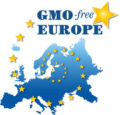How do you start a GMO free Region? Who are the most important partners? What arguments, activities and strategies have worked well so far? What are the challenges and potential problems? Examples will be presented and discussed. A NO to GMOs needs a YES to crop-diversity and natural plant-breeding. What are the alternatives to GMOs and how to deal with them?
- Grazia Mammucini: The Tuscany Law on the protection and enhancement of local breeds and varieties.
Mrs. Mammucini is the author of that regional law, which protects local seed varieties and actively promotes their further development and commercial use. - Innovation by natural plant development. Successful examples from regional and organic plant breeding.
Cornelia Wiethaler will present practical cases and suggestions how to develop r e a l alternatives in plant breeding.
Speakers
- Gracia Mammucini, Regione Toscana, Italy
- Cornelia Wiethaler, Agravivendi – Germany
Presentation
- Wiethaler: First GMO-free landscape Überlingen am Bodensee and the development of alternative organic plant breeding
Background Papers
Tuscan law on the Protection and Enhancement of Local Breeds and Varieties of Interest to Farming, Animal Husbandry and Forestry
EU directive 98/95/EC on seed legislation with respect to genetically modified plant varieties and plant genetic resources
